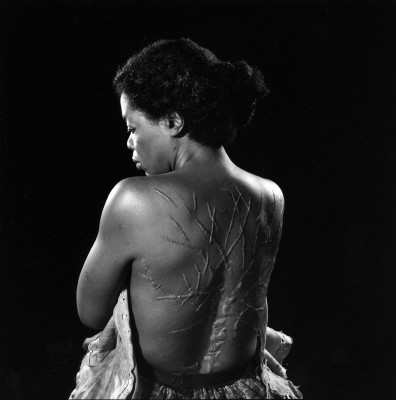The slave system is innately detrimental to a mother-child relationship. Because a mother is the child's "first vital other," and is made unavailable by the slave system, the child is deeply and terribly affected, Schapio describes. The child, by lacking this vital connection, never develops his or her "self." Growing up, the system continues to deny the child's being as a human subject. Schapiro describes this as the slave system "choking off" the "vital circulation between the mother and child so crucial to the development of self." This lack of affirmation of self that occurs for the child as a result of being a part of the slave system is detrimental to them as individuals.
This was idea that resonated with me greatly. Without the love of my mother, I truly believe that I would have a hard time knowing and developing my sense of self. I am incredibly thankful to have been in a situation where there were not forces working against this bond as I was growing up, as Sethe experienced with her own children.
Schapiro brings us back to the scene where Sethe was brutally assaulted by the schoolteacher's nephews in order to discuss how when her milk is taken from her in this instance, it is not the first time she has been robbed. We are reminded that as Sethe is growing up, her mother is providing her milk to the white children (200), leaving Sethe with what is left over. This is another instance where Sethe's relation with her own mother has been "choked off" leaving her robbed by the system, and starved emotionally of the nurturing relationship she so badly yearned for. The connection made here by Schapiro was incredibly fascinating to me and drew a huge parallel between the instance and her ideas for me.
The worst atrocity of slave system, according to Schapiro, is the physic death. After living through a life of servitude, a personal is no longer fully alive. After being robbed of the love and validation required to go on living, there is no way for them to be fully alive following their experience in servitude. This is an idea that I agree with profoundly. Throughout Beloved, it is clear that Sethe has been deeply effected by her experiences at Sweet Home and undeniably robbed by the entirety of the system until she only part alive. This affects her so much so, that (as we later find out) she makes the decision to take the lives of her own children in order to prevent her children from being robbed in the same way.
“Freeing yourself was one thing; claiming ownership of that freed self was another." This quote from page 112 of Beloved, relates strongly to the ideas presented by Schapiro in this article. Although Sethe has been freed physically from her life of servitude, her experiences have stayed with her, leaving her essentially half alive. Even in her physical freedom, she has a whole other battle to fight. Her thoughts truly prevent her from claiming ownership of herself and being truly free, leaving her stuck in a place of brokenness.











